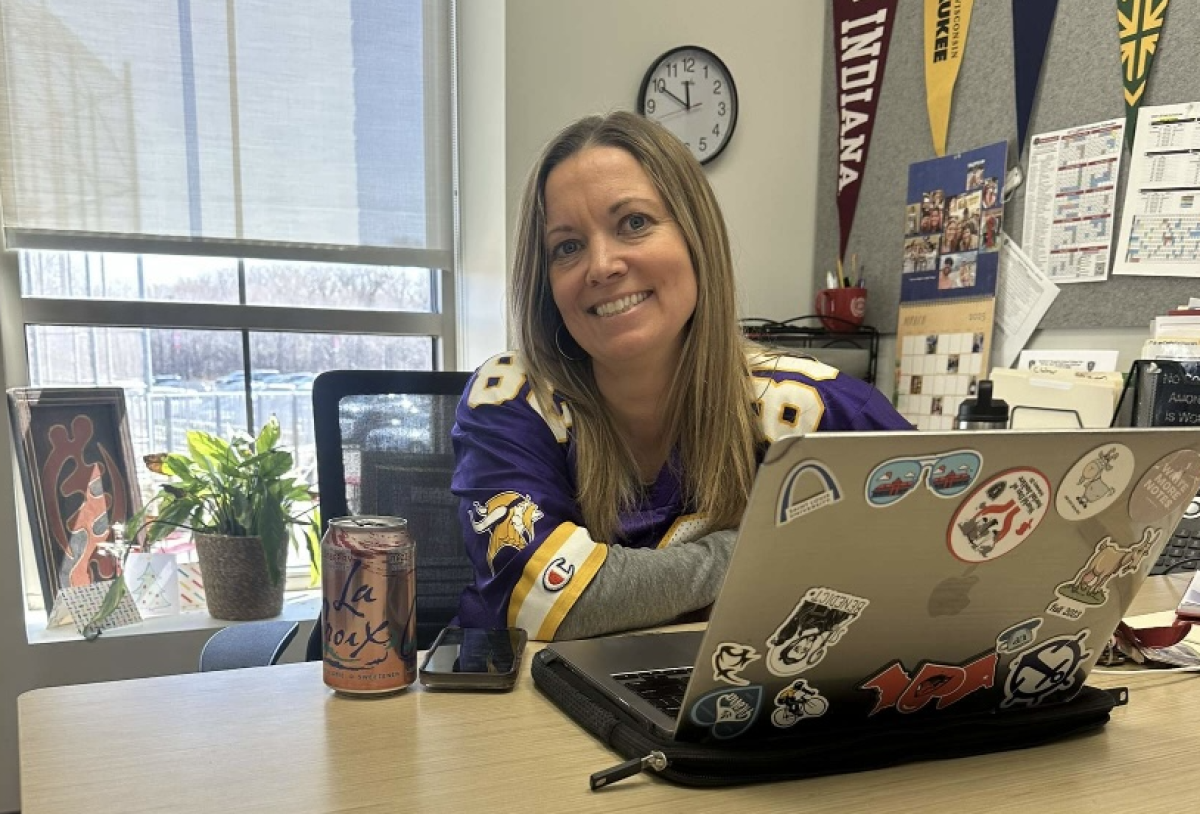Taylor Swift re-records, re-releases, and redefines herself

Fearless (Taylor’s Version) Album Cover, Republic Records, Fair Use
Taylor Swift recreates the cover of her 2008 album Fearless for her re-recorded version.
Taylor Swift released her re-recorded 2008 album Fearless on April 9th. By re-recording, Swift made a statement on empowerment and music ownership, delivering an album that is smoother and better produced than its original.
It’s safe to call Taylor Swift a Renaissance woman. For 15 years, she’s been dominating the music industry. Her narrative writing style has gained her a cult following of mostly teenage girls and made her one of the most decorated female artists of all time.
Through all that, she’s consistently redefined herself: moving from country to pop to now, in 2020 and 2021, alternative. Her latest albums Folklore and Evermore—both released in surprise drops within months of each other—were massively successful, with Folklore earning the most first-day album streams for a female artist. The albums simultaneously debuted on Billboard’s single and album charts, making Swift the first artist to do so.
Folklore and Evermore showcase some of Swift’s strongest writing and explore a new era of fictional songs. Swift has always been revered for her powerful lyricism, but these albums are darker, sadder, and more mature than ever before.
In February, Swift announced the release date of her re-recorded album Fearless—under the title Fearless (Taylor’s Version). Originally released in 2008, Fearless was Swift’s second studio album and earned Swift her first album of the year.
It’s not surprising that, following the success of Folklore and Evermore, Swift would be eager to release more music. However, choosing Fearless as the first album to be re-recorded might give pause. Why at the height of her lyricism and at the opening chapter of a new era, would she choose to re-release songs she wrote when she was still a teenager?
Simply put, Swift does not own the majority of her music. In 2019, Swift’s former label was acquired by manager Scooter Braun. Included in that acquisition were the masters of Swift’s first six albums—Taylor Swift, Fearless, Speak Now, Red, 1989, and Reputation.
Because every copy for sale and distribution is made from the masters, the owner of a master also owns all copies as well as usage rights. Since the 2019 sale, disputes have occurred over the usage of Swift’s songs, and she made it her intention to re-record her old songs in order to own them again.
Although Fearless was Swift’s second album, it was the first album to bring her recognition and launch her into stardom. That nostalgia might have played a role in her decision to release Fearless first. Additionally, Swift is notorious for keeping fans on their toes, leaving gibberish to decode and hidden messages in her posted pictures. Releasing the re-recorded albums out of order may be another way for her to keep up the mystery.
The re-recorded album itself is not shockingly different. Swift worked with producer Jack Antonoff and went through each song line-by-line in order to keep them true to their original. That’s not to say it’s a perfect replica; in fact, it’s a better version.
Swift’s voice has matured and can flow into belts and high notes. Overall, her tone is richer and deeper. She makes small vocal adjustments that give her songs variety and are sure to make any die-hard ‘Swiftie’ lose their mind.
On a production level, the album is cleaner. Antonoff is subtle but effective. The instruments are fuller to match Swift’s voice. There are slight tempo changes in a few songs and certain instruments are highlighted at times they weren’t before.
Upon its release, Fearless (Taylor’s Version), earned 50 million Spotify first-day streams, became the first re-recorded album to top U.S charts, and broke multiple records.
The 2008 version of Fearless had still been on the Billboard top 200 charts but dropped completely from the chart and lost 19% in sales with the release of Swift’s version. The re-recording accomplished exactly what it set out to do, bringing Swift’s songs back into her hands. She’s proven once more the success of her music and has continued to pave the vital path for artists to own their work.




































![Teacher Lore: Mr. Hillman [Podcast]](https://bsmknighterrant.org/wp-content/uploads/2025/03/teacherlorelogo-1200x685.png)





